

You got the chef in you for this quiz?

10 exciting questions

10 questions to test your knowledge
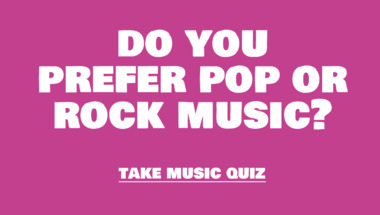
10 questions to answer

How many of them will you answer correctly?

10 questions

I have 10 questions for you!

10 mixed questions

10 brainy questions

How high can you score?

What will be the height of your score?

10 questions
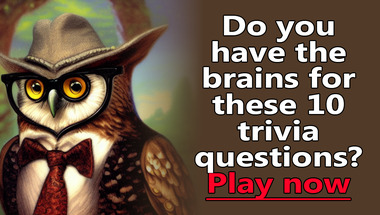
10 questions spanning various topics
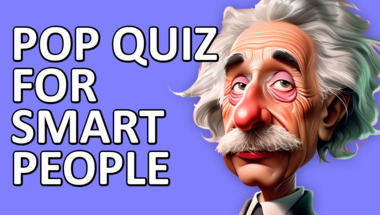
10 assorted trivia questions

10 Impossible Questions

Are you up for a quiz?

Can you find the 10 songs by George Michael?

10 mixed questions

10 Impossible Questions
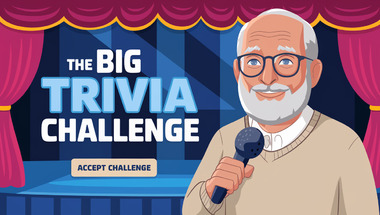
10 questions to test your knowledge

10 mixed questions

10 mixed questions

10 mixed questions

10 questions to test your knowledge

Let's see how smart you really are!

10 questions

10 fun and challenging questions

Let's see how smart you really are!

10 questions in mixed categories

How many question can you answer correctly?

How many of the good old songs do you remembe..

10 fun questions

How many songs do you know?

How many of them will you fail?

Can you score 8/10?

How many of them will you answer correctly?

Will you even get 5 questions right?

10 questions

How high can you score?

Can you score 7 or higher in this one?

10 questions to test your knowledge

Let's see how smart you really are!

10 flavourful questions

10 questions of mixed topics

10 hot questions

10 mixed questions

Can you remember the color of these 10 famous..
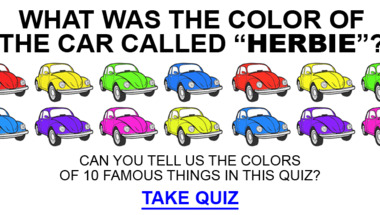
Let's see how smart you really are!

Can you help us find the missing words?

10 mixed questions

Tell us where you failed in the comments

10 mixed questions

How many correct answers can you pull off?

We wrote 10 questions in mixed categories

Take the quiz and get your result
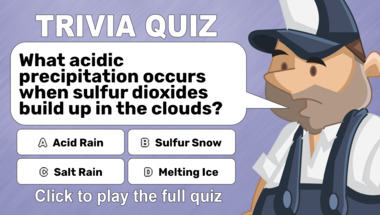
Can you score 7 or higher in this one?

Scoring a clean 10 will never happen

10 Songs. Can you guess them all?

Are you up for a quiz?

How many of them will you answer correctly?

10 Quite Difficult Questions
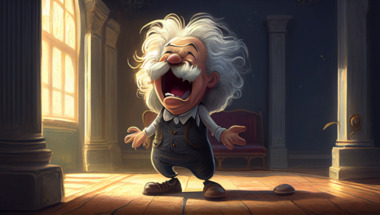
10 Questions
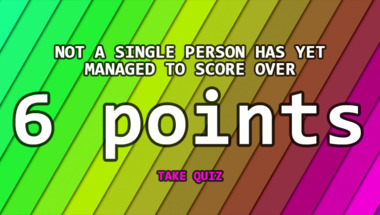
Share if you did good

10 questions in mixed themes

How many of them will you answer correctly?
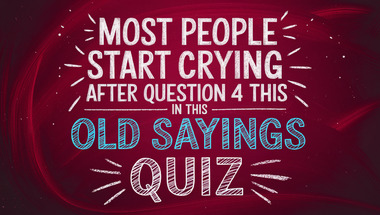
10 hot questions
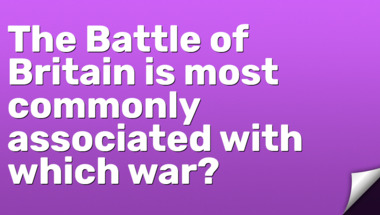
Post your score in the comments!

Let us know your score in the comments

How many correct will you get?

10 Smart Questions
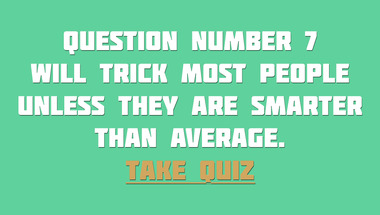
Can you help us find the missing words?

10 mixed movie questions

10 Difficult Questions

10 questions to test your knowledge

How high can you score?

Are You Expert Enough For This One? :)

10 mixed up questions

How many correct answers will you get?
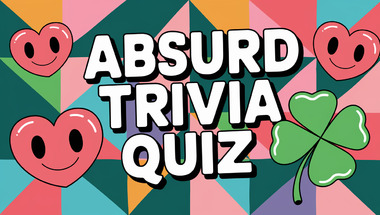
Only the smartest will score to perfection!

10 genius questions lined up

10 mixed questions

Do you have what it takes?

10 mixed questions

10 Impossible Questions

10 questions about history.

Theme : literature

Are you old enough for this one?
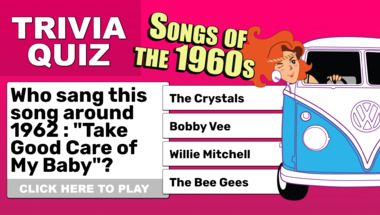
10 mixed questions
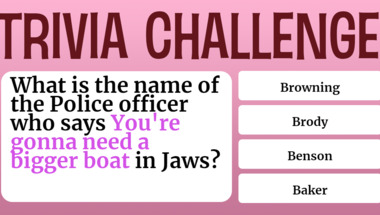
10

10 mixed questions for you

How many actors will you get right?

10 questions are waiting for you

10 mixed questions

Let's see how smart you really are!

10 questions to test your knowledge

10 quite hard questions
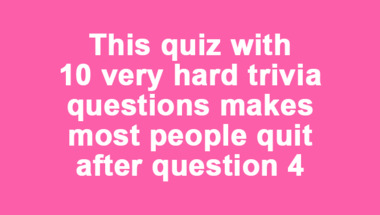
10 Almost Impossible Questions

10 questions for you

10 tricky questions

10 questions

10 questions

10 questions to test your knowledge

Test your knowledge

Let's see how smart you really are!

How many songs can you guess?
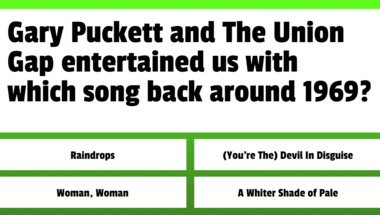
Tell us your result in the comments

Test your knowledge with these 10 questions.

10

10 questions

A collection of ten trivia questions spanning..

How many of them will you answer correctly?

10 hard questions

Can you guess these 10 singers/bands?

Trivia quiz for experts
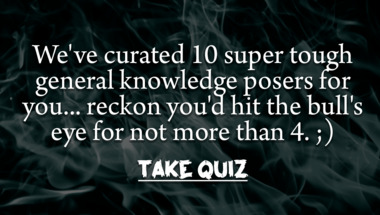
10 questions for you to have fun with

Trust us, the last 2 questions will haunt you

Let's test your trivia skills!

Click here to have fun

10 questions of mixed topics

10 mixed category questions

Exploring 10 Fun and Fascinating Trivia Questions
Everyone loves a good trivia challenge! Not only do they test our knowledge, but they also spark curiosity and make for a fun way to learn interesting facts about the world around us. In this article, we’ll take a deep dive into ten intriguing trivia questions, exploring the background, context, and stories behind each answer. Whether you’re prepping for your next trivia night or just looking to expand your general knowledge, you’re sure to find some fascinating tidbits here!
1. What cartoon featuring little blue creatures was a hit in the 1980's?
The answer is The Smurfs. These lovable, tiny blue beings with white hats became an international sensation in the 1980s. The Smurfs were originally created by Belgian comic artist Peyo (Pierre Culliford) in 1958, but it was the animated television series, which debuted in 1981, that catapulted them to global fame. The show followed the adventures of Papa Smurf, Smurfette, Brainy Smurf, and their friends as they outsmarted the villainous Gargamel and his cat Azrael. The Smurfs became a cultural phenomenon, spawning toys, movies, video games, and even a theme song that is instantly recognizable to many.
2. A pride is a group of which of these animals?
The term pride refers to a group of lions. Unlike most other big cats, lions are highly social animals and live in groups called prides. A typical pride consists of several related females, their cubs, and a few adult males. This social structure allows them to work together for hunting and protection. The word pride is thought to represent the majestic and noble bearing of lions, often referred to as the king of the jungle. Lion prides are most commonly found in the grasslands and savannas of sub-Saharan Africa.
3. Which of these is a real place?
This is a classic question in which the correct answer can only be determined if the options are presented, but it often refers to unusual or amusing place names found around the world. For example, there are real towns named Truth or Consequences in New Mexico, Boring in Oregon, and Intercourse in Pennsylvania, USA. Such place names usually have interesting histories, often originating from local events, people, or inside jokes that became official town names. These quirky names are a testament to human creativity and sometimes attract tourists who just want a photo with the town’s welcome sign!
4. Which Stewart had a 1993 hit with 'Have I Told You Lately'?
The answer is Rod Stewart. Although the song Have I Told You Lately was originally written and recorded by Van Morrison in 1989, Rod Stewart's 1993 cover version became a massive hit, especially after a live version appeared on his album Unplugged…and Seated. The heartfelt ballad won the hearts of millions with its romantic lyrics and Stewart’s raspy, emotive voice. Rod Stewart, a British rock singer-songwriter, has enjoyed a career spanning several decades, with numerous chart-topping hits and a reputation as one of the best-selling music artists of all time.
5. What is a deep crack in a glacier called?
Such a crack is known as a crevasse. Crevasses are deep fissures or splits that occur in the surface of a glacier as a result of the movement and stress within the ice. They can be several meters wide and hundreds of meters deep, posing significant dangers to mountaineers and explorers. Crevasses form when the brittle upper layer of a glacier moves at a different speed than the softer, deeper layers. Understanding crevasses is essential for safe glacier travel and is a fundamental part of glaciology, the study of glaciers.
6. What pop group sings: When I was younger so much younger than today - I never needed anybody's help in any way, in one of their songs?
This lyric is from the song Help! by The Beatles. Released in 1965, Help! was the title track for both the album and the film of the same name. The Beatles, consisting of John Lennon, Paul McCartney, George Harrison, and Ringo Starr, are one of the most influential and successful bands in history. The song Help! was written by John Lennon, who later described it as one of his most honest songs, reflecting a period of anxiety and stress despite the band's massive success at the time. The song remains a classic, embodying both catchy melodies and relatable lyrics.
7. Which US State is known for its potato crop?
The answer is Idaho. Idaho is renowned for its ideal potato-growing conditions, which include rich volcanic soil, a favorable climate, and abundant water from mountain snowmelt. Idaho potatoes, particularly the Russet Burbank variety, are sought after for their quality and versatility, used in everything from baked potatoes to French fries. The state even has a potato museum, and its license plates proudly proclaim Famous Potatoes. Idaho's agricultural industry has helped shape both the local economy and the state's identity.
8. The highest point may be called the.?
The answer is summit. The term summit refers to the highest point of a hill or mountain. It is a word commonly used in geography, mountaineering, and even in politics (such as summit meetings between world leaders, symbolizing the highest level of discussion). Reaching the summit of a mountain is often a climber’s ultimate goal, representing achievement, perseverance, and the overcoming of challenges. Famous summits include Mount Everest, the highest point on Earth above sea level.
9. Which word means favorable or lucky?
The word is auspicious. Auspicious is often used to describe something that is likely to bring good fortune or success. It derives from the Latin word auspicium, meaning divination by observing the flight of birds. In modern usage, an auspicious occasion is one that is considered favorable or conducive to success. For example, couples often choose an auspicious date for a wedding, hoping it will bring happiness and luck.
10. Who was King of France during the French Revolution?
The monarch during the French Revolution was King Louis XVI. He reigned from 1774 until 1792, when the monarchy was overthrown. Louis XVI’s reign was marked by financial crisis, political turmoil, and widespread discontent among the French people. The revolution began in 1789, and by 1792, France had become a republic. Louis XVI was tried for treason and executed by guillotine in January 1793, a pivotal event that marked the end of absolute monarchy in France and the rise of modern democracy.
Conclusion
Trivia questions like these provide more than just a moment of entertainment—they open doors to history, science, pop culture, and language. Each answer unveils a story, a fact, or a tradition that enriches our understanding of the world. Whether you’re a trivia buff or a casual learner, exploring the background behind each question can turn simple answers into fascinating journeys of discovery.